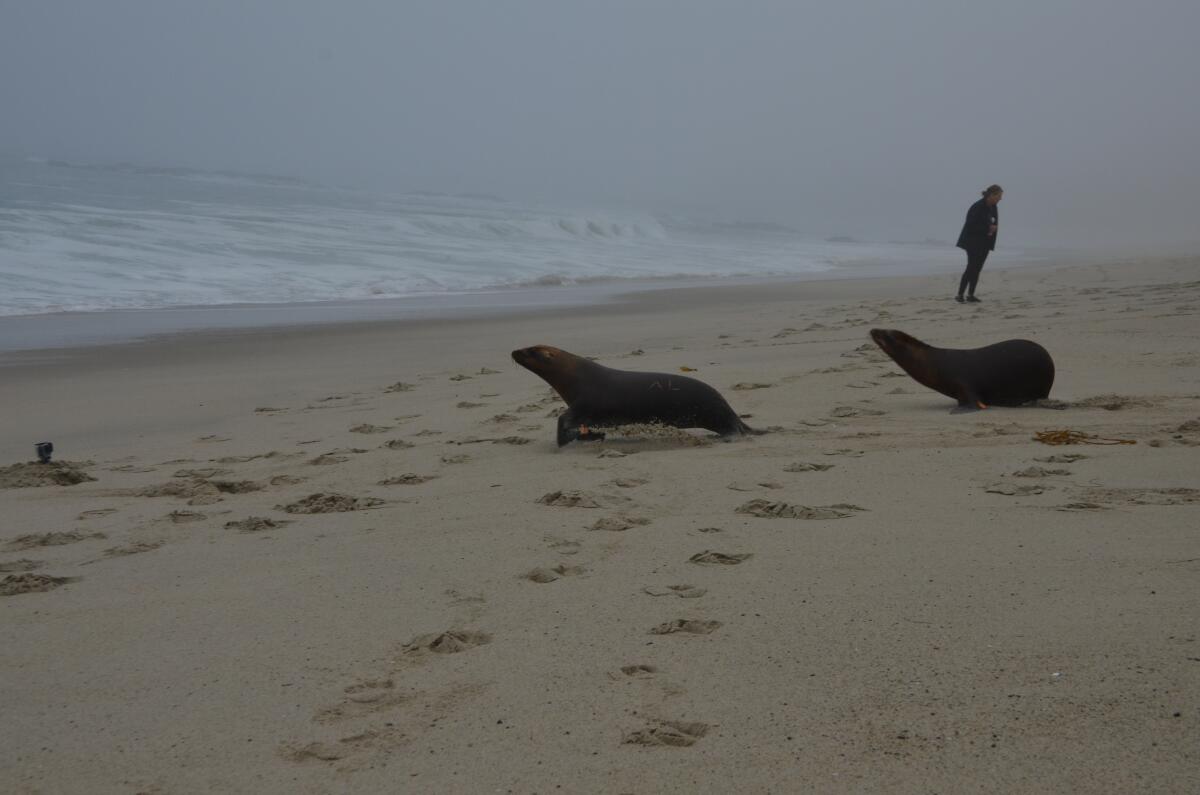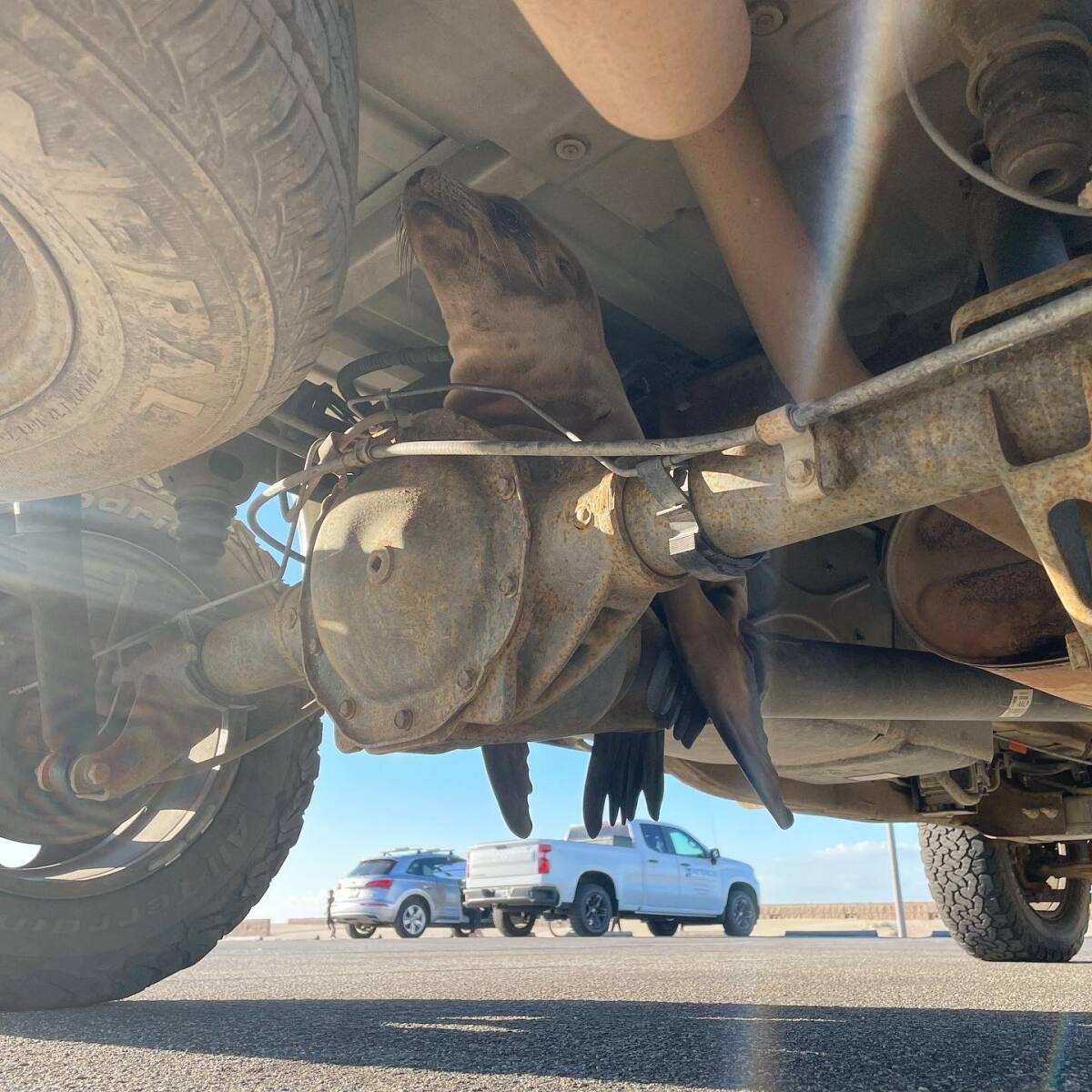Pacific Marine Mammal Center releases five sea lions from rehabilitation

- Share via
Five sea lions waddled their way back to sea at Aliso Beach Sunday after months in rehabilitation at the Pacific Marine Mammal Center in Laguna Beach.
All five were young male California sea lions that were found as pups earlier this spring along Orange County’s coast. The center’s chief executive officer Glenn Gray said the spring tends to be the peak season for sea lion rescues, primarily because the vast majority of pups are born during July.
“By the time they are going to be weaned off of [their] mom in January, February or March, that’s when we start to see strandings,” said Gray. “They wander off from mom or mom goes out to sea to find more food, comes back and the pup’s gone. They’re just not capable of fending for themselves yet.”
In May, the center accepted 37 stranded young sea lions, the most in one month so far this year.
After Sunday’s release, Gray said there are 21 sea lions still in the facility’s care.
“We get them healthy and get them back up to what we call a release weight, which depends on the breed,” said Gray. “They may come in malnourished at say 35 pounds. We’ll plump them up to about 80 pounds. That might be more than they need; but if we’re putting them out there to sea and they’re a little hesitant to fend for themselves, they won’t starve.”

The five sea lions released Sunday arrived at the center in the spring ranging in weight from 28 to 45 pounds. The heaviest of them, nicknamed Yoshi, came in on April 26 weighing 68 pounds.
The other four sea lions were named Chassis, Flint, Poirot and Trifecta.
Feeding the sea lions and other mammals the Laguna Beach center cares for can become expensive. During busy seasons, the center can go through between 500 and 1,000 pounds of fish daily, depending on the species brought in for care. So, the Pacific Marine Mammal Center annually hosts its Fish Drive to raise funds and hopes Sunday’s release might attract attention from people who might want to donate.
It’s unclear when or how the Fish Drive started, but it runs the length of the summer and begins in mid-June. It concludes in August.
“We always have patients, but this [fundraiser] is primarily to get through the balance of this year and prepare for ... next year,” said Gray.
So far, the center’s raised about $49,000, which is halfway to its ultimate goal of $100,000. Gray said $1 can buy a pound of fish. Interested readers can donate at pacificmmc.org/donation/fish-drive.
All the latest on Orange County from Orange County.
Get our free TimesOC newsletter.
You may occasionally receive promotional content from the Daily Pilot.




